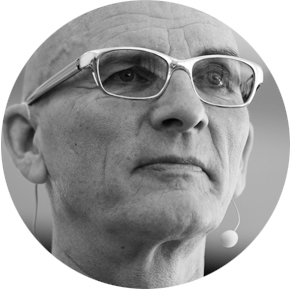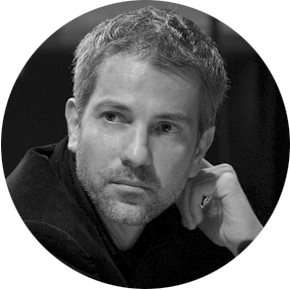Famous Swedish economist, writer, co-author of “Funky Business: Talent Makes Capital Dance” Kjell Nordstrom gave an insight session “Business in FAANG Style” on September 7 in Yerevan, Armenia.
The session was organized by skill.am, and mobile operator VivaCell-MTS was the general partner.
Mediamax has selected the most noteworthy remarks Kjell Nordstrom made at the session, with topics ranging from significant changes, mass urbanization and deglobalization to the future of humankind.
Monopolists and the threshold of significant changes
We are living in the world of FAANG (Facebook, Amazon, Apple, Netflix and Google) companies, i.e. dominating enterprises. By size and features they are actually monopolists: they interfere everywhere and operate out of competition. But that is temporary. A few years later we will witness significant changes.
Everyone was delighted when Facebook first appeared. We thought it would unite people, bring them closer together: everyone communicates and conflicts end. But there is a fundamental problem. The more we, rational beings, learn about each other, the less we like each other. Would we allow these technologies develop in this way five years ago? No! We understand what these technologies entail only after they are introduced. Now the corresponding legislation is becoming increasingly tougher. And all technologies (Facebook, Google, Amazon, etc) will be subject to stricter regulations.
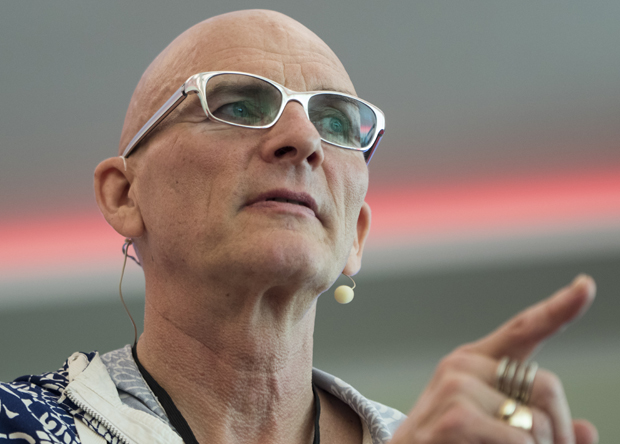 Kjell Nordstrom
Kjell NordstromPhoto: Mediamax
Our world only has temporary monopolists. They come forward as sole providers of specific, unique services, but some time later the market transforms so significantly that their technologies are copied and distributed quickly, and they are monopolists no more. That is the fate of any innovation.
The life span of temporary monopolists keeps decreasing in the digital world. In other words, knowledge spreads fast. Something that is considered exclusively yours soon becomes everybody’s thing.
Yes, FAANG companies are giants today, but that is just for now. They will meet their end too. Perhaps, they do not believe that now, but they will face the same fate as, for instance, Nokia or Volvo.
The prediction
I am often asked at seminars to talk about the future. But neither you nor I can make projections. Why? Because we do not have special studies at our disposal. We can only connect the dots, form hypotheses, but no more than that. There’s good news too: we can outline mass tendencies and describe them quite clearly on the basis of current situation. We know what is happening today and we know it surely. We can predict the future on the grounds of that knowledge.
I want to warn you about something. Every time you allow yourself predictions for next week or year, keep in mind that it sounds weird, funny and probably makes no sense.
3000 times more powerful technologies
My colleagues from Massachusetts Institute of Technology (MIT) tried to figure out the difference between the future and the past.
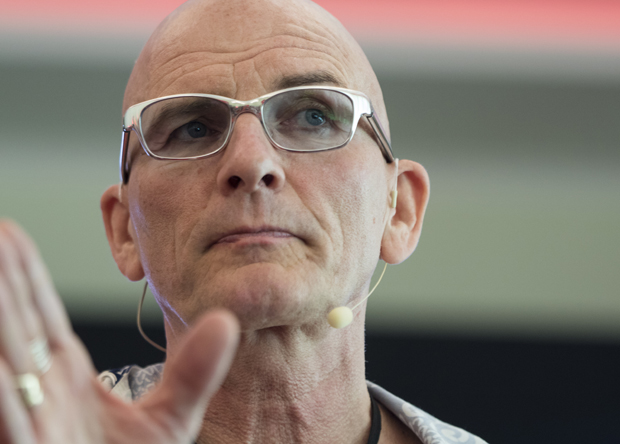 Kjell Nordstrom
Kjell NordstromPhoto: Mediamax
The difference lies in speed. The rate of changes is 10 times what is was when people invented the electric light bulb, telephone, automobile and other technologies. We are working faster. Another important aspect is that the technologies we use today are 300 times more powerful and influential than the previous ones. If we multiple 300 by 10, we get 3000. That means that the forces dreaming to influence global economy are approximately 3000 times more powerful and influential than previous inventions.
Human, ape and imagination
We begin to understand much more when we study apes. Why are humans so successful? Why were we able to inhabit the entire planet while chimpanzees are literally dying out? What is the difference between us? The latest research considers our ability to adapt the reason of our success. We adapt to the environment better than chimpanzees.
Why is that so if we both have a brain? Well, our brain has something theirs does not - imagination. Aggressive imagination. We can think about things that do not exist. We can dream and make up stories, and they cannot do that. We can share our fantasies. For instance, I have a fantasy that I’m sharing with you: there is someone above who controls everything, a creator. It is a typical fantasy. No one has seen the creator, but what happens when we share this fantasy? People start to believe in it, and a miracle happens. Common ideas can unite people, who don’t know each other. They are in the same boat, and they believe in the same idea, while chimpanzee can’t share ideas on the same level as humans do, thus they can’t form large groups. For example, Armenia as a country and Siemens as a company are fantasies, which people share with each other and finally start to believe in them. These fantasies can unite people.
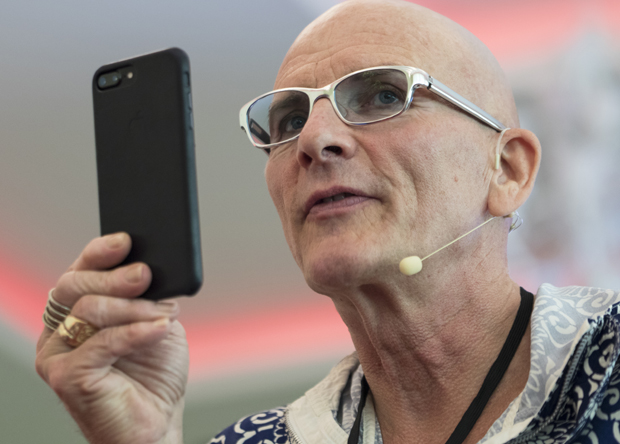 Kjell Nordstrom
Kjell NordstromPhoto: Mediamax
Why do I tell you about this? As I have already mentioned, today’s technologies are 3000 times more powerful, and the legends that we believed in, which prevailed at the beginning, are being destroyed in front of our eyes. They stop existing, we start to lose control. Old stories are forgotten and new ones are composed. They totally change our lives, and we don’t know how to keep up with this pace.
Deglobalization, matrix and ultra-urbanization
The whole world today is a huge construction site. The construction will be more active in the coming 40 years than it has been over the past 4000 years. This is a completely new world and a new section in the history of humanity. Probably, we are in the middle of deglobalization. The horizons of our world have broadened over the last period of time. However, new processes are taking place now: international companies are selling their foreign assets and going back home, to the roots. International investments are being reduced.
We evidence a new trend: more local companies are founded instead of large international corporations.
People perceive today’s technologies in different ways. Certain people are happy, while others are against. I think the truth is somewhere between.
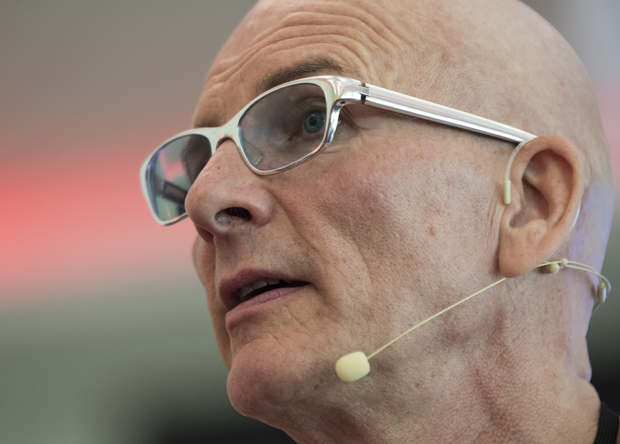 Kjell Nordstrom
Kjell NordstromPhoto: Mediamax
I see certain matrix, which surrounds the world. How does that matrix look like? To receive its image, it is necessary to speak about capitalism. Market economy is everywhere. Capitalism is like a machine, a complex mechanism, where sorting is the main function. It sorts everything into groups of effective and ineffective features.
Another situation which needs to be recorded is the fact that we are at the threshold of the fastest urbanization of humanity. This is unprecedented. There are around 200 countries in the world, which will be turned into 600 cities. Those cities will attract 80-90% of the world’s population. This transformation will take only 30 years. This is the main reason why construction will accelerate over the coming 40 years as compared to the past 4000 years. People will only live in cities, for which infrastructure is required. This is a mass urbanization, which is present even today.
The broader and more powerful the technologies get, the faster urbanization grows and the more we want to live closer to each other. This is a paradox, but the reality is the way it is. Cities will be more powerful than countries, which will certainly influence politics and economy.
Another side of the matrix is digitalization. If something can be digitalized, it’s digitalized, copied and spread free, becoming the society’s property. Internet is a huge copying machine, which doesn’t allow protecting anything, regardless of whether it is knowledge, technology or anything else. This applies to all spheres of life. Your secrets aren’t yours anymore, and you can’t stick to your competitive advantages.
Artificial intelligence
Generally artificial intelligence doesn’t bother me. I don’t think it is dangerous.
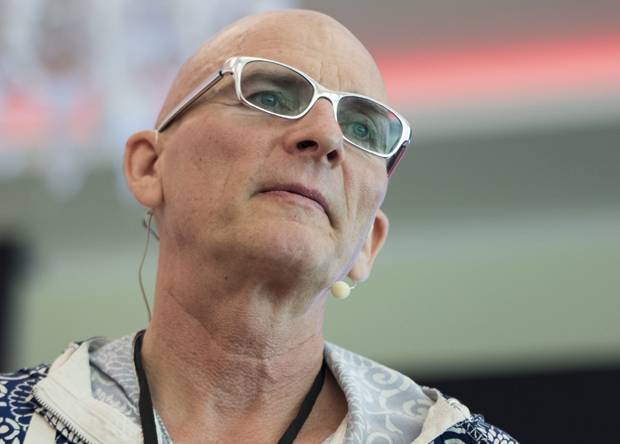 Kjell Nordstrom
Kjell NordstromPhoto: Mediamax
Computers learn certain things and act in accordance with concrete situations, while human intelligence is different. What can people do better than robots? They can fail. We are better at making mistakes, than any computer, any robot. We aren’t perfect and the fact that mistakes are necessary is incredible. In fact, science is multiplication of mistakes. We can’t create anything without making mistakes, and people do it very well. Robots, machines, artificial intelligence can become part of our lives. Definitely, robots will be perfect in certain tasks, but human intelligence will exceed artificial intelligence in a number of parameters. Machines can’t cheer, joke. Why? It’s simple: the funniest things are based on mistakes.
Artificial intelligence is a so-called service, but it can’t deprive us of life. It will take a lot of workplaces, creating even more instead.
Marie Taryan
Photos by Emin Aristakesyan









